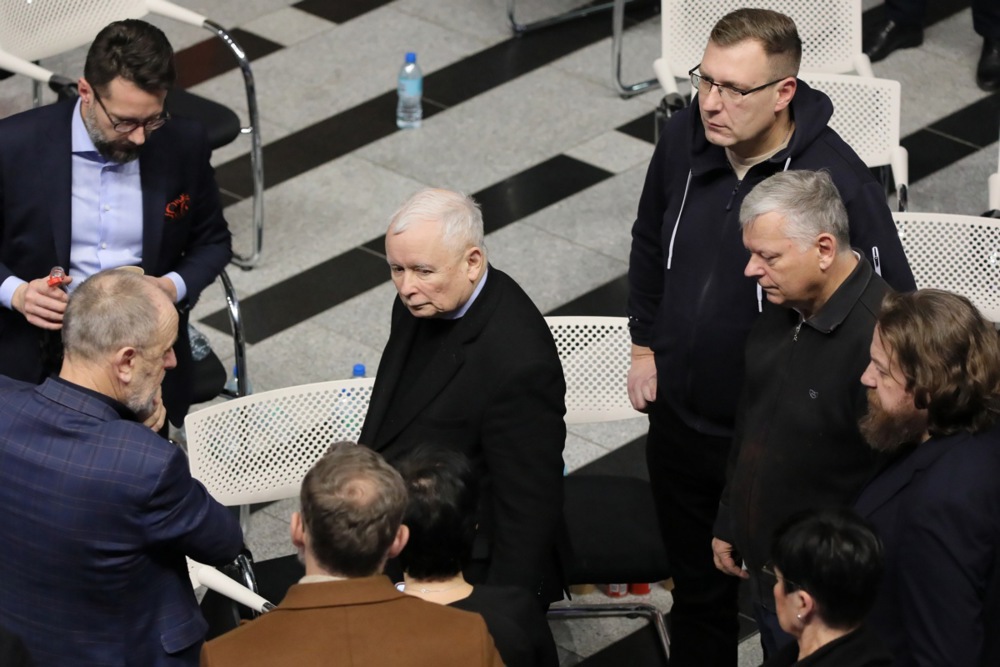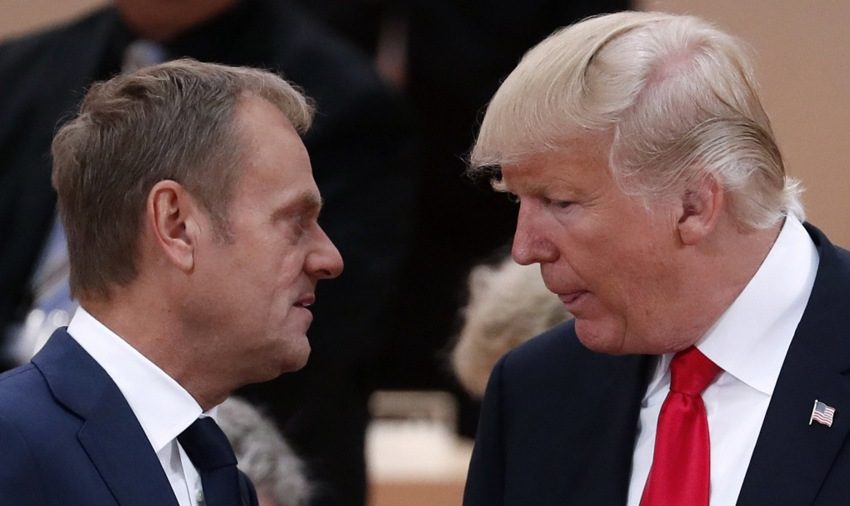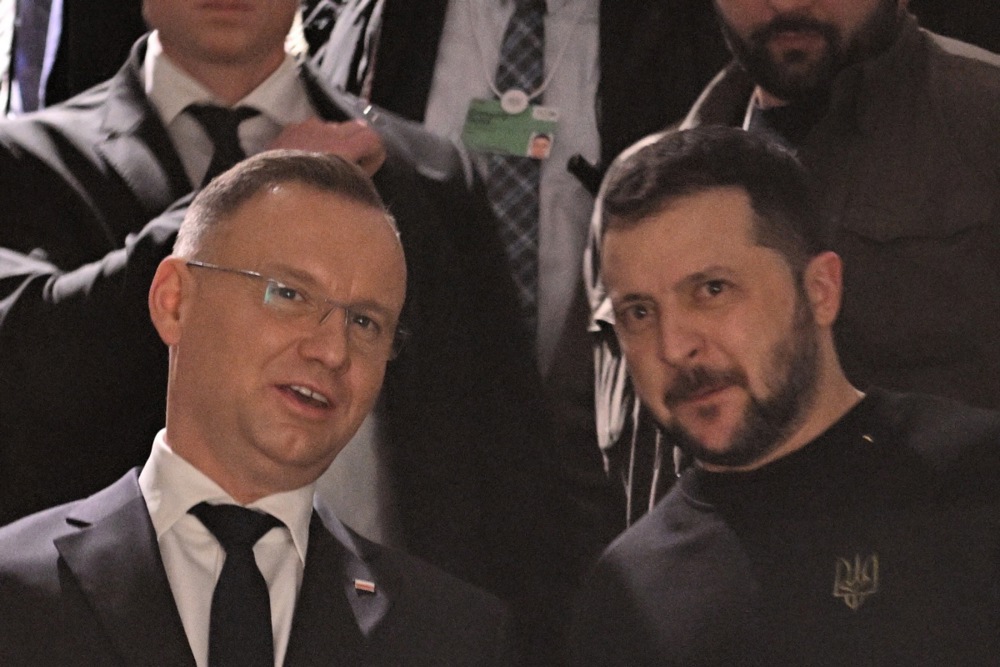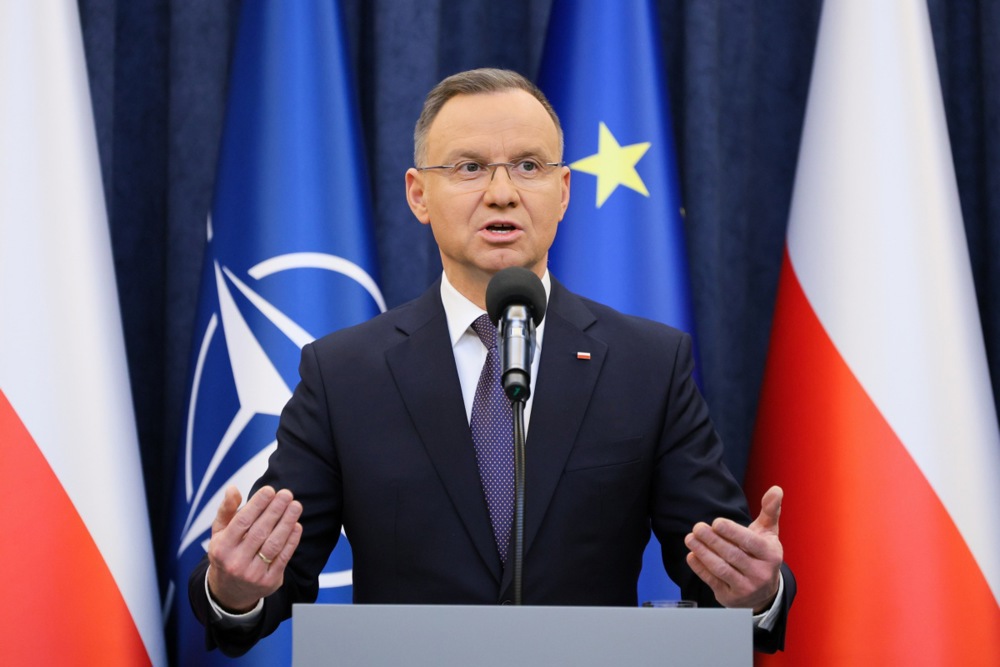Polish Prime Minister Donald Tusk has tweeted that former US president Donald Trump wants to see NATO “attacked” by Russia.
Polish President Andrzej Duda hit back, saying Tusk was “burning bridges” with a potential Republican administration in the US.
Duda has said that the alliance between Poland and the US must be strong, whomever is in the White House and that he will always act in the “spirit” of that alliance, respecting all Poland’s partners in the US.
The Polish Head of State was reacting to a post from Tusk on X on February 11. In that, he recalled that Duda had once stated that then-president Trump “keeps his word”.
He added a paraphrase of a quote from Trump saying: “I will encourage Russia to attack NATO member states” and he asked Duda: “Maybe this should be the subject of a meeting of the Cabinet Council, Mr President?”
Tusk has made clear he disagreed with Duda calling a meeting of the Cabinet Council – the body in which the Polish President sets the agenda – to be discussed with the whole Government.
A meeting has been scheduled for February 13 on Tusk’s public investment plans.
Responding to Tusk’s tweet, Duda said: “Offending half of America’s political scene does not serve either the security or economic interests of our country.”
He added that Poland should respect and work with whomever is in the White House at any given time as the US is a key security ally for Poland.
Tusk had earlier attacked Republican Senators for voting against a package of aid to Ukraine saying: “President Reagan will be turning in his grave.”
He went on to accuse the Republicans of “undermining the security” of Central Europe.
Both Duda and Tusk were reacting to Trump having provocatively said he would not protect Member States that failed to meet relevant financial obligations, adding he would encourage Russia to “do with you as they want” should such commitments not be met.
Former Conservative (PiS) prime minister Beata Szydło said Trump’s comments were “rhetorical jousting”.
He went on to say that, far more important, was the fact that the head of NATO, Jens Stoltenberg, has said Russia will be a “threat to NATO” for many years and yet the arms industry in European NATO states was virtually “non-existent and needs rebuilding fast”.
Duda and Tusk have clashed repeatedly on domestic affairs over issues such as reform of the judiciary, the Government’s takeover of public media and the future of large-scale public investment projects – but this is their first major public spat over foreign and security policy issues.
Until now, Duda and Tusk had made efforts to present a united front regarding defence and security policy, including the war in Ukraine. The ongoing US presidential election campaign seems to have caused them to break ranks.
In the past Tusk had criticised the then-PiS government for getting “too close” to the Trump administration and for failing to establish strong links with the Democrats and the administration of current US President Joe Biden.
Now it is Duda and PiS who are taking Tusk to task over what they see as risking cordial relationships with a likely incoming Republican US administration.
Alongside that, some Conservative commentators, such as Polish journalist Łukasz Warzecha, have accused Tusk of being anti-American and prone to put “all of Poland’s eggs in the basket” of a European Union-based alliance with Germany and France.
The Trump administration seemed to get on well with Poland, then led by the PiS, and as a result more US troops were deployed in Poland.
The country then bought LNG from the US and signed a co-operation deal with the Americans on developing nuclear power. That led to the recent announcement of the building of Poland’s first nuclear-power plant.
The Trump administration was also supportive of the previous Polish government’s Three Seas initiative for countries in Central and Eastern Europe that lie between the Baltic, Black Sea and Adriatic seas.
It entailed support for infrastructural projects aimed at developing the North-South axis within the EU to counterbalance the apparent West-East axis in the community.
The Three Seas initiative did not lead to any major political collaboration between the disparate states in Central and Eastern Europe.
The present Tusk administration has expressed a strong preference for returning to the West-East axis and the prioritisation of the Weimar Triangle format involving Germany, France and Poland as drivers of EU foreign policy.





